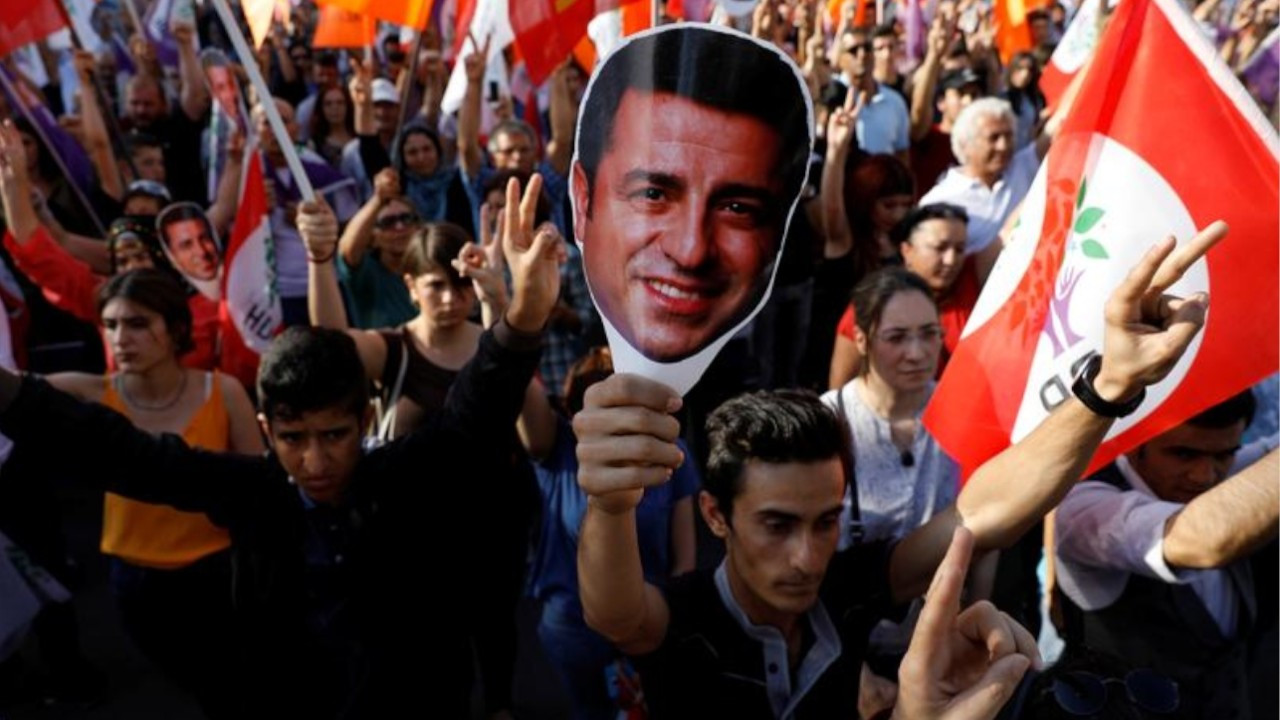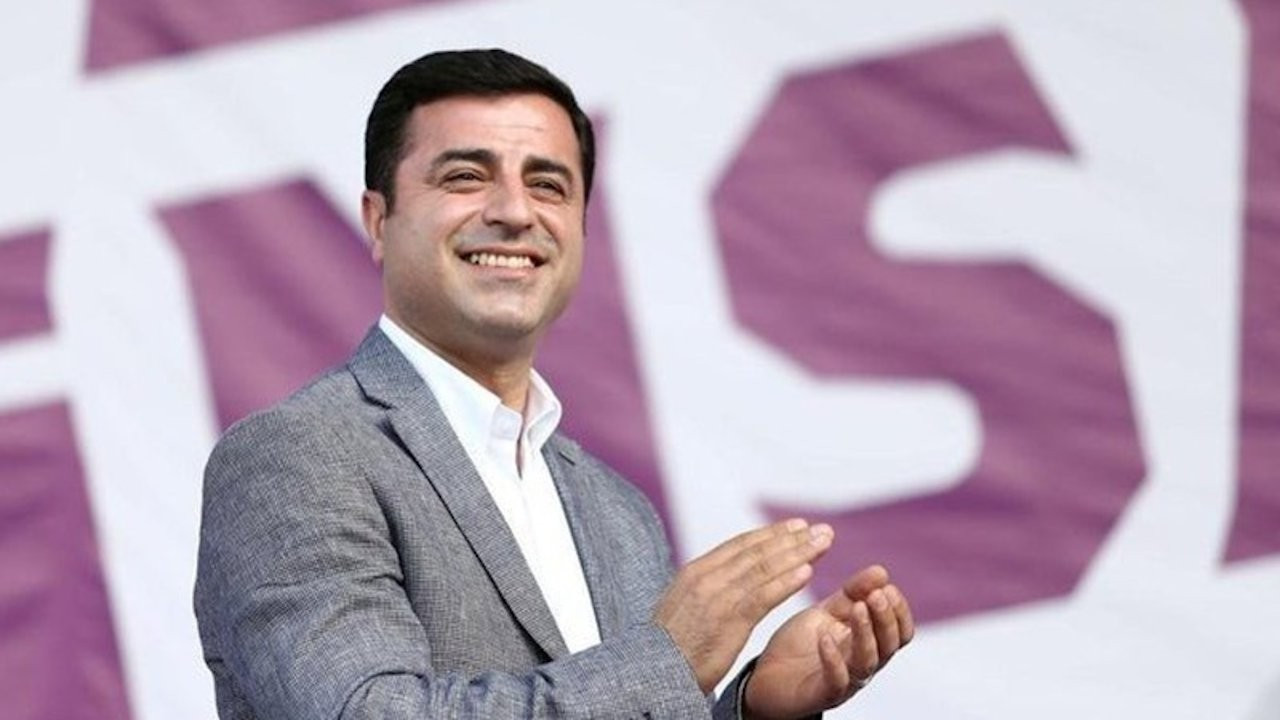Demirtaş calls on judiciary to comply with ECHR ruling, not to take part 'in crime of coup'
Former HDP co-chair Selahattin Demirtaş has said that Turkish authorities' refusal to release him despite the ECHR ruling constitutes a “crime of coup.” The renowned politician said that Turkish judges and prosecutors who have been shutting their eyes to the ECHR's decision are “committing a heavy crime.”
Duvar English
Former Peoples' Democratic Party (HDP) co-chairman Selahattin Demirtaş has said that the authorities' refusal to release him despite the judgment of the European Court of Human Rights (ECHR) constitutes a “crime of coup,” Mezopotamya news agency reported.
Demirtaş made the comments on Feb. 3 during a hearing of a trial in which he is accused of “insulting” Ahmet Davutoğlu when the latter was prime minister.
Demirtaş recalled the ECHR's December-dated ruling on him which had said that Turkish authorities' justification for the renowned politician's four years in prison was a cover for limiting pluralism and debate.
“The most unimportant clause with regards to the ECHR's decision is that I should be freed because that only concerns me. But the other five clauses concern 83 million people [of Turkey]. And this decision says that [my] arrest has been undertaken with political motives,” Demirtaş told the Istanbul 47th Criminal Court of First Instance, connecting to the court from the Edirne prison with SEGBIS – Turkey's judicial video-conferencing system.
Demirtaş said that Turkish judges and prosecutors who have been shutting their eyes to the ECHR's decision are “committing a heavy crime.”
“Because here it says that the arrest has been made 'with political motives.' The ECHR is not talking about a simple violation. It says, 'the rulership has tried to liquidate one of its opponents to gain the advantage in the elections and referendum. Keeping us inside [prison] corresponds to a bigger crime. It is a crime of coup,” Demirtaş said, calling on judges “not to be a party to this crime.”
Demirtaş said that a total of 122 cases have been launched against him as a result of the jurisdiction becoming an instrument of oppression.
He said that President Recep Tayyip Erdoğan has been constantly verbally targeting him, “probably having told courts, 'You will not protect any of Demirtaş's rights.'”
The Grand Chamber of the ECHR ruled on Dec. 22, 2020 that Demirtaş - who is charged with terrorism-related offenses - had his rights violated under five different categories, including freedom of expression and liberty.
The Grand Chamber said Demirtaş’s pre-trial detention since November 2016 had sent “a dangerous message to the entire population” that sharply narrowed free democratic debate.
The ECHR said it saw no evidence in decisions on Demirtaş’s detention that linked his actions and the alleged offenses.
“The Court concluded that the reasons put forward by the authorities for the applicant’s pre-trial detention had merely been cover for an ulterior political purpose, which was a matter of indisputable gravity for democracy,” it said in its finding.

 MEPs call on Council of Europe to pressure Turkey to release Selahattin DemirtaşHuman Rights
MEPs call on Council of Europe to pressure Turkey to release Selahattin DemirtaşHuman Rights Top Europe rights court asks Turkey to submit defense regarding Demirtaş's imprisonment in Kobane casePolitics
Top Europe rights court asks Turkey to submit defense regarding Demirtaş's imprisonment in Kobane casePolitics